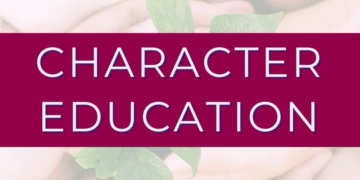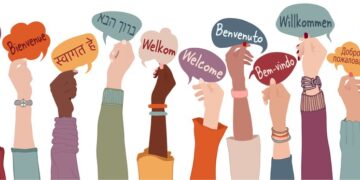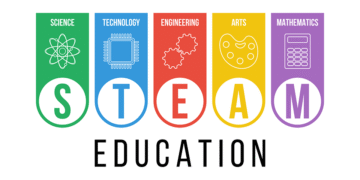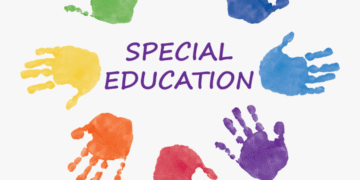Beyond a Single Score: The Case for Comprehensive Assessment
Standardized tests have long been a staple of the education system, providing a seemingly objective measure of student performance. However, these tests often fail to capture the nuances of individual learning journeys and can even perpetuate inequalities. It’s time to consider a broader approach to assessment that values individual growth and diverse learning styles.
The Limitations of Standardized Tests
While standardized tests offer comparable data across large populations, they often fall short in reflecting a student’s true potential or mastery of a subject. These tests tend to prioritize rote memorization over critical thinking, problem-solving, and creativity – skills that are increasingly vital in today’s rapidly evolving world. A single test score cannot possibly encapsulate the complexity of a student’s learning style, their progress over time, or the unique challenges they may face.
Furthermore, standardized tests can be particularly disadvantageous for students from marginalized backgrounds. Cultural biases embedded within the test content and format can lead to inaccurate assessments of their knowledge and abilities. The pressure associated with high-stakes testing can also exacerbate anxiety and hinder performance, particularly for students who already face systemic barriers to academic success.
Embracing Comprehensive Assessment Methods
To gain a more accurate and holistic understanding of student learning, educators are increasingly turning to comprehensive assessment methods. These methods go beyond standardized tests to include a variety of tools and techniques that capture a broader range of skills and knowledge. Classroom-based assessments, such as quizzes, projects, and presentations, provide valuable insights into student understanding and progress. Portfolios, which showcase student work over time, offer a tangible record of their growth and development. Performance-based assessments, such as debates and experiments, allow students to demonstrate their ability to apply knowledge and skills in real-world contexts.
By incorporating these diverse assessment methods, educators can create a more complete picture of each student’s strengths, weaknesses, and learning style. This information can then be used to tailor instruction to meet individual needs and provide targeted support to help students reach their full potential.
Focusing on Individual Growth and Development
The ultimate goal of assessment should be to promote student growth and development. By shifting the focus from standardized test scores to individual progress, educators can create a more equitable and effective education system. This approach recognizes that every student learns at their own pace and in their own way. It allows educators to identify students’ strengths and weaknesses, tailor instruction to meet their individual needs, and provide targeted support to help them overcome challenges.
Furthermore, a focus on individual growth encourages students to take ownership of their learning. When students are actively involved in the assessment process, they are more likely to be motivated and engaged. They can track their own progress, identify areas for improvement, and celebrate their successes. This sense of ownership fosters a lifelong love of learning and empowers students to become active participants in their own education.
The Power of Formative Feedback: Guiding Students on Their Learning Journey
Formative feedback, an integral part of modern education, moves beyond traditional grading to actively support student learning and growth. This ongoing assessment approach provides students with timely and specific guidance, helping them to understand their strengths and weaknesses and to make progress towards their learning goals.
From Measurement to Holistic Growth
The shift from standardized tests to holistic assessment reflects a growing recognition of the importance of viewing students as individuals with unique needs and learning styles. Educators are increasingly embracing assessment as a tool for comprehensive development, rather than simply a measure of knowledge at a single point in time. This holistic approach takes into account not only academic achievement but also social-emotional development, creativity, and critical thinking skills.
Data-Driven Instruction: Personalizing the Learning Experience
Teachers are now equipped with a wealth of data on student progress, allowing them to tailor their instruction to meet individual needs. Real-time data on student performance enables teachers to adjust their teaching methods, personalize learning experiences, and provide targeted support to students who are struggling. This data-driven approach ensures that every student receives the support they need to succeed.
The Art of Giving Effective Feedback
Formative feedback is more than just providing information; it’s an art form. Effective feedback is specific, timely, and actionable. It focuses on the student’s work, rather than the student themselves, and provides concrete suggestions for improvement. It involves setting clear goals based on data, assigning differentiated tasks to meet individual needs, and consistently celebrating achievements to keep students motivated and engaged.
Classroom Tools in Action: Putting Formative Feedback into Practice
A variety of classroom tools are being used to gather formative feedback, including progress monitoring assessments, student portfolios, and online learning platforms. These tools enable teachers to track student progress, identify areas where students are struggling, and adapt their lesson plans based on immediate feedback. This continuous feedback loop fosters continuous improvement in student abilities and understanding.
For example, progress monitoring assessments can be used to track student progress in reading fluency or math skills. Student portfolios provide a collection of student work over time, showcasing their growth and development. Online learning platforms can provide real-time feedback on student performance and allow teachers to differentiate instruction based on individual needs.
Rethinking the Assessment Process: A Focus on Growth and Potential
The current trend is about rethinking the entire assessment process. By embracing formative feedback and other comprehensive assessment methods, educational institutions are aiming to create a system that truly supports student growth and helps them reach their full potential. This shift requires a change in mindset, from viewing assessment as a gatekeeper to viewing it as a tool for learning and development.
Data Source: TIA Guidebook 2024-25, Arvida Middle School resources, NCTQ Teacher and Leader Effectiveness Guidelines, Texas Education Agency official bulletins and TTAP FAQ. Publication dates vary across 2024.
This data highlights the growing emphasis on formative feedback and comprehensive assessment methods in education. By embracing these approaches, educators can create a more equitable and effective learning environment for all students.
Diversified Evaluation: Meeting the Needs of Every Learner
Educational assessment is undergoing a significant transformation, moving away from standardized approaches and towards methods that acknowledge the unique needs and backgrounds of each student. This evolution aims to create a more equitable and effective learning environment for all learners, regardless of their background or learning style.
The Rise of Student-Centered Assessment
There is a growing emphasis on student-centered evaluation methods. Instead of relying solely on standardized tests, educators are exploring varied approaches that consider individual learning styles, cultural backgrounds, and prior experiences. This shift aims to provide a more accurate and comprehensive picture of student progress, one that reflects the diverse strengths and talents of all learners.
Student-centered assessment methods include:
- Performance-based assessments: These assessments require students to apply their knowledge and skills to solve real-world problems or create authentic products.
- Portfolio assessments: These assessments showcase student work over time, providing a tangible record of their growth and development.
- Self-assessments: These assessments encourage students to reflect on their own learning and identify areas for improvement.
- Peer assessments: These assessments allow students to provide feedback to one another, promoting collaboration and critical thinking.
Localized and Evidence-Based Research: Tailoring Instruction to Meet Local Needs
Experts suggest a greater reliance on localized, evidence-based research. This means that schools will increasingly use data specific to their communities to inform decisions about curriculum, instruction, and assessment. This targeted approach ensures that resources are used effectively to support student growth and address the unique challenges faced by local communities.
For example, a school in a low-income community might use data on student attendance, achievement, and family engagement to inform decisions about after-school programs, parent workshops, and other support services. By tailoring instruction to meet the specific needs of their students, schools can create a more equitable and effective learning environment for all.
Holistic Development Beyond Academics: Preparing Students for Future Success
The focus is expanding beyond academic achievement to encompass holistic development, including social-emotional learning, creativity, and career readiness. Integrating learning-to-career pathways is becoming increasingly important, as it helps prepare students for future opportunities and ensures that they are well-rounded individuals ready to contribute to society.
This holistic approach to education recognizes that students need more than just academic knowledge to succeed in the 21st century. They also need strong social-emotional skills, such as self-awareness, empathy, and collaboration. They need to be creative and innovative, able to think critically and solve complex problems. And they need to be prepared for the world of work, with the skills and knowledge necessary to succeed in their chosen careers.
Reconsidering Traditional Models: Embracing a More Nuanced Approach
Traditional large-scale assessment models are being re-evaluated. There is a growing recognition that these models do not always capture the full picture of a student’s abilities and potential. Diversified evaluation offers a more nuanced and equitable approach, one that takes into account the unique strengths and needs of each learner.
This shift away from traditional assessment models reflects a growing understanding of the limitations of standardized tests. While these tests can provide valuable data on student performance, they do not always capture the full range of skills and knowledge that students possess. Diversified evaluation methods, on the other hand, offer a more comprehensive and holistic assessment of student learning.
Q&A
Question 1: What are the main criticisms leveled against standardized tests in the provided text?
Answer: The text argues that standardized tests offer only a limited snapshot of student performance, often neglecting critical thinking, problem-solving skills, and individual learning styles. They primarily focus on rote memorization and a single score fails to capture the nuances of a student’s learning journey and progress over time. Furthermore, the data shows declining reading scores and widening achievement gaps, highlighting the limitations of relying solely on these tests.
Question 2: What alternative assessment methods are proposed as replacements or supplements to standardized tests?
Answer: The text advocates for a holistic approach using diverse evaluation methods. These include classroom-based assessments, portfolios, projects, and formative feedback mechanisms. The goal is to allow students to demonstrate their knowledge and skills in various ways, providing a more comprehensive understanding of their progress and individual needs. Student portfolios, in particular, are highlighted as a way to track growth over time.
Question 3: How does formative feedback contribute to a more effective learning environment?
Answer: Formative feedback is presented as a crucial element, shifting the focus from simply grading to actively guiding student learning. It involves using real-time data on student progress to adjust teaching methods, personalize learning experiences, and provide targeted support. This approach includes setting goals, assigning differentiated tasks, and celebrating achievements to keep students motivated and engaged. The use of progress monitoring assessments and student portfolios are cited as examples of tools that facilitate this process.






